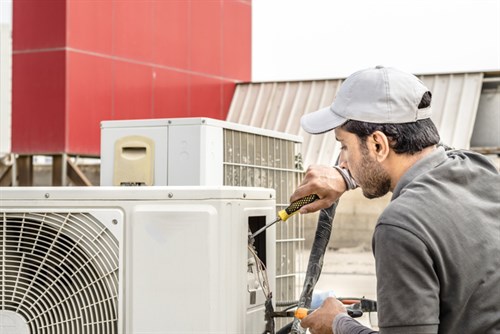When it comes to effectively managing a homeowners’ association (HOA), hiring a professional HOA management company can provide numerous benefits. This article will explore the top 10 benefits of hiring an HOA management company and how they help run day-to-day operations smoothly and effectively.

1. Expertise and Experience
When you partner with a professional HOA management company, you harness industry-specific expertise and abundant hands-on experience. Professional HOA management companies have years of experience managing diverse communities and navigating varying scenarios and challenges effortlessly. Their track record shows proficiency in meeting unique community needs, from high-rise condominiums to lifestyle communities and everything in between. Entrusting your community to these seasoned professionals means turning HOA management from a daunting task into a seamlessly handled operation. Their wisdom, earned through years in the field, empowers your HOA Board to operate effectively, ensuring compliance, stability, and satisfaction. Their expertise and experience translate into a well-managed community of harmony, progress, and satisfaction for all residents.

2. Efficient Financial Administration
Entrusting your HOA’s financial administration to a professional management company isn’t just strategic—it’s transformative. Financial administration is pivotal yet challenging, involving complex budgeting, sensitive payment collections, and intricate expense handling. Partnering with a proficient HOA management company streamlines these processes, elevating your association’s financial efficiency to new heights.
HOA management companies don’t just manage—they employ sophisticated, proven systems to ensure your HOA’s finances are impeccably maintained. They expertly navigate budget management, ensuring every penny is accounted for and wisely allocated. Beyond budgeting, these experts adeptly handle payment collections, including the delicate task of overdue assessment collection. An external, unbiased party provides a buffer between Board members and residents, reducing potential conflict over overdue fees. This impartial stance instills fairness and transparency, as residents see that there’s no personal agenda.
Additionally, an HOA management company accurately tracks and manages expenses, closely monitoring your association’s financial health. They provide transparent financial reports, enabling the Board to make informed decisions based on accurate, up-to-date information. Partnering with an HOA management company transforms financial administration into a smoothly functioning system. Their expertise and procedures ensure your association’s finances are managed efficiently, on time, and with transparency, benefiting the entire community.

3. Legal Resources
A professional HOA management company, like AAM, is knowledgeable about legislation affecting homeowner associations and ensures policies conform to the law. While having a board member well-versed in HOA laws is ideal, it’s not always the case. Without adequate legal knowledge, the association risks potential legal issues. Hiring an HOA management company bridges this expertise gap with managerial excellence and informed legal opinions.
HOA management professionals know the law and stay updated on changes, court decisions, and trends that could impact your community. This knowledge acts as a compass, guiding your Board’s decisions to be both effective and legally compliant. Even the most knowledgeable community manager may encounter unfamiliar legal terrain. In such cases, HOA management companies have a significant edge with access to legal resources and professional contacts.
This access allows them to address legal issues swiftly and competently, providing the right guidance when needed. Engaging an HOA management company means acquiring a partner who ensures your community operates within the law. They protect residents’ interests and help build a harmonious, legally compliant community. Their legal expertise is your association’s asset, paving the way for confident decision-making and sound governance.

4. Technology Solutions
One noteworthy benefit of hiring an HOA management company is gaining access to their state-of-the-art Technology Solutions. These strategic integrations are designed to streamline operations, enhance transparency, bolster resident communication, and improve the overall community living experience. At AAM, we have developed a library of technology and resources to help transform complex processes into efficient, user-friendly ones. Our suite of tools serves as a beacon of innovation in community management, automating tasks and making information readily available.
Technology promotes accessibility, ensuring that residents have what they need, when they need it, right at their fingertips. This can transform the HOA living experience, making it more convenient and satisfying. By hiring an HOA management company, such as AAM, your community doesn’t just gain a service provider—it acquires a partner that leverages technology to amplify efficiency, responsiveness, and care, setting the stage for a harmonious, well-managed community.

5. Effective Vendor Management
An HOA management company acts as a strategic ally to the Board, relieving them of vendor management responsibilities. They’re not just administrators—they’re connectors, building relationships with vendors to deliver timely, high-quality services that maintain your community. Effective vendor management involves negotiating favorable contracts, ensuring vendors meet high standards, and addressing issues promptly and professionally.
These tasks are crucial since vendor service quality directly impacts your community’s functionality and aesthetic appeal. An experienced HOA management company uses its extensive vendor contacts to meet your community’s needs. Effective vendor management can reduce repair and replacement costs over time through consistent maintenance and expert service from trusted vendors. All of this is efficiently managed under the expert oversight of your HOA management company.

6. Enhanced Community Appeal
Partnering with an HOA management company helps preserve and enhance your community’s aesthetics and appeal. With their expertise, they implement strategies that improve your neighborhood’s look, functionality, and overall desirability. They are the driving force behind well-maintained landscapes, homes, and common areas that residents enjoy daily.
A well-managed community attracts potential homeowners, fostering a sustainable and thriving environment. This promotes pride among current residents and can significantly increase property values, benefiting everyone. An HOA management company understands your community’s unique needs and works to highlight and enhance it. They make your community not just a collection of homes but a highly sought-after living destination.

7. Transparent Communication and Community Engagement
Effective, consistent communication is the cornerstone of a thriving HOA community. By enlisting an HOA management company, communities can access comprehensive, diversified communication strategies encompassing traditional and digital mediums—from newsletters and community bulletins to dynamic websites and homeowner portals. These multi-functional platforms deliver important updates, share community achievements, and foster a transparent environment, sharing Board decisions and initiatives, thereby cultivating trust among members. Moreover, this open communication encourages active engagement within the community.
Residents become more aware of their roles within the community narrative and, consequently, are more inclined to participate constructively. This understanding minimizes friction and resistance to new projects, allowing for smoother operations and harmonious living. Finally, an HOA management company ensures the community stays abreast of the evolving communication landscape. Continuously adapting and upgrading their communication tools to align with residents’ preferences ensures that important information is accessible, relevant, and engaging. An HOA management company helps transform your association from a residential area into an engaged, informed, and vibrant community.

8. Strategic Support and Training for Board Members
Board members are the backbone of any HOA, and their contributions are pivotal in shaping the community’s success. As such, the guidance and support they receive become vital for making informed and strategic decisions. HOA management companies fill this role impeccably, offering guidance to Board members based on years of industry knowledge, extensive experience, and specialized expertise. An HOA management company acts as a trusted advisor to your Board, offering insights and recommendations on various issues, including financial management, legal compliance, community engagement, HOA vendor management, and more.
By leveraging their in-depth understanding of HOA operations and best practices, they equip the Board members with the knowledge, tools, and resources required to navigate the complexities of association management. Furthermore, HOA management companies can offer training and education opportunities to Board members, ensuring they stay current with the latest developments in the HOA industry. This could include changes in state or local regulations, emerging trends in community management, new technological solutions, and more.
With such a support system, Board members are empowered to make decisions with greater confidence and clarity. They can effectively fulfill their roles and responsibilities, streamline decision-making processes, and easily navigate potential challenges or disputes. This leads to a smoother functioning HOA and increases community members’ satisfaction.

9. Professional Contacts and Resources
With the complexities of an HOA, the need for a diverse range of professional services is inevitable. An HOA management company has access to an expansive network of trusted professionals, from legal experts and financial accountants to maintenance specialists, insurance brokers, and landscape artists, providing a key advantage for your community. The well-established connections with these professionals ensure your community has multiple options available when high-quality, specialized services are needed. Whether it’s navigating legal complexities, ensuring financial health, or maintaining the physical appeal of the community, the HOA management company has the right contacts to address these needs promptly and proficiently.

10. Time and Stress Savings
Partnering with an HOA management company provides two of the most sought-after commodities—time savings and invaluable stress alleviation. Outsourcing the intricate, time-consuming day-to-day HOA management tasks and governance to seasoned professionals can benefit Board members and the community enormously. An HOA management company is a reliable professional who skillfully navigates the association’s operations. They shoulder administrative responsibilities, from financial management to vendor coordination, dispute resolution, and legal compliance. Their thorough management ensures the seamless operation of the association, leaving no task pending or overlooked.
By transferring these extensive duties to the HOA management company, Board members can reclaim time spent juggling these tasks. This newfound time can be directed toward their personal lives, core responsibilities, and strategic decisions that shape the community’s future. But the benefits continue beyond time savings. Delegating these tasks also drastically reduces the stress of managing an HOA. Board members no longer have to split their attention between their personal commitments and the often overwhelming demands of the HOA.
With a competent HOA management partner, Board members can have peace of mind knowing their association is in capable hands. By leveraging the expertise of an HOA management company, Board members can rediscover the joy and satisfaction of their role—shaping a vibrant, thriving community free from the stress of daily operations and governance. They can focus more on what matters most: creating a community they and their fellow residents are proud to call home.
In Conclusion
In conclusion, partnering with an HOA management company like AAM opens many opportunities to elevate your community living experience significantly. Leveraging our deep expertise in community management, robust financial administration capabilities, legal resources, comprehensive maintenance services, and commitment to enhancing community appeal, we strive to be an indispensable asset for your HOA. We empower Board members to make well-informed decisions, ensure residents enjoy impeccably maintained common areas, and streamline your HOA operations to deliver unparalleled efficiency.
Choosing AAM means offloading HOA management’s vast responsibilities and intricate complexities onto a dedicated team of industry veterans. Every community is unique, with distinct needs, values, and aspirations. At AAM, we understand this and are committed to providing personalized solutions that align with your community’s unique vision and goals. With our tailored approach and strong partnership, your HOA can thrive and become an even more desirable place to call home.
Don’t let your community settle for anything less than the best. Contact us today and start your journey towards a better-managed, prosperous community.





















